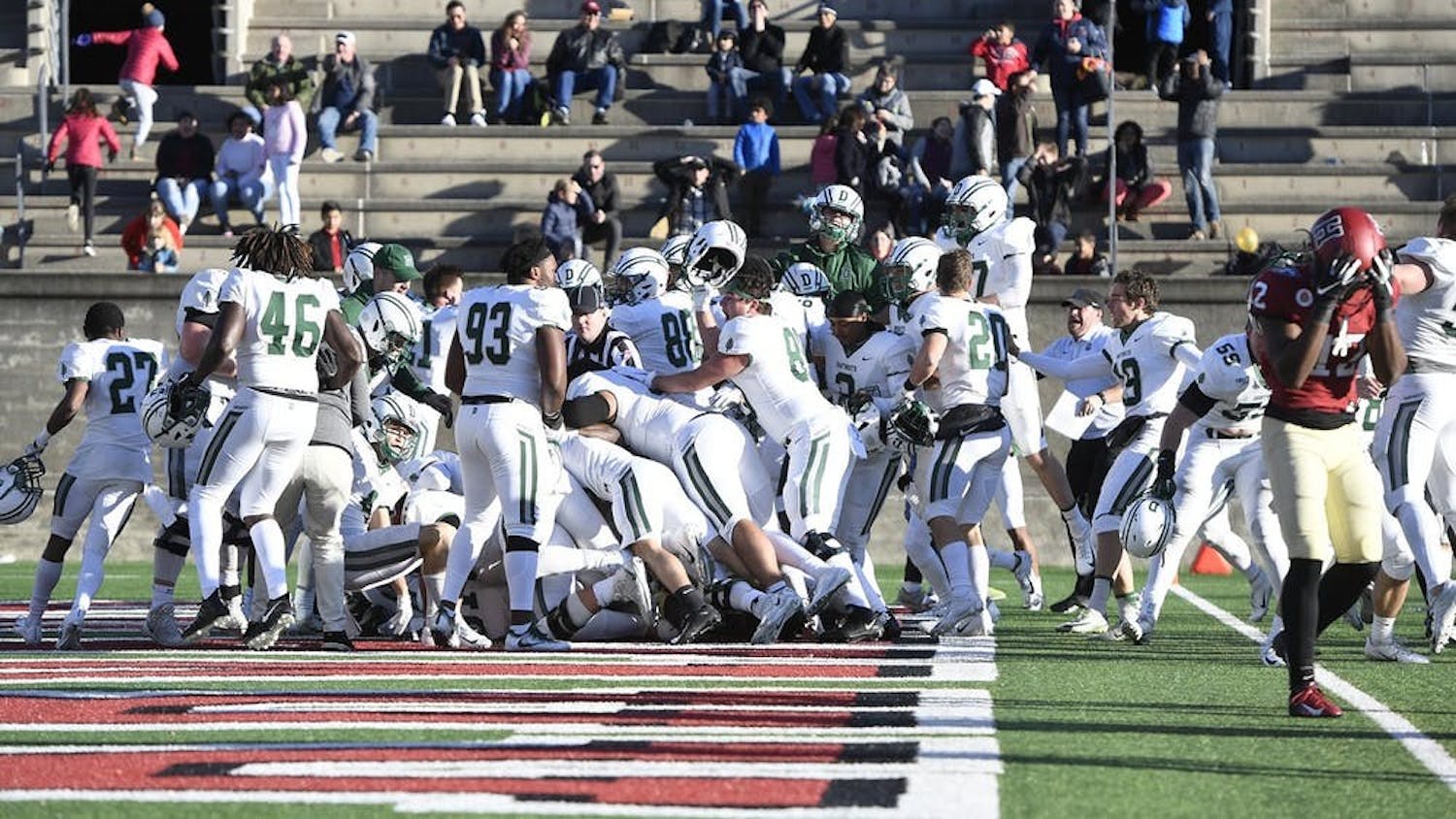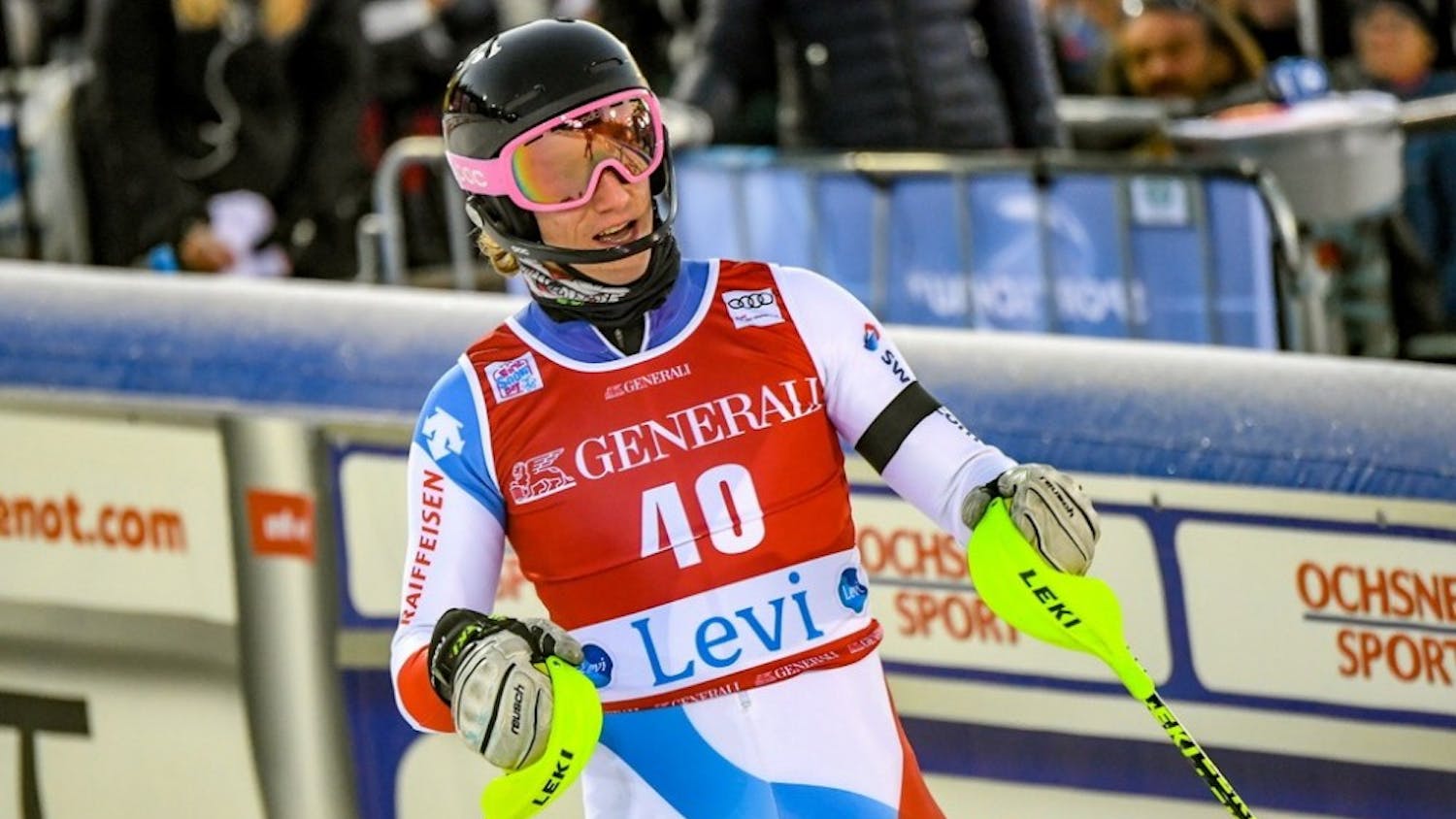Cleveland Browns chief of staff and former Dartmouth offensive quality control coach Callie Brownson doesn’t answer questions about what she sees herself doing in the future.
“Five years ago, I never saw myself doing this, so I just think to make plans for that stuff never works out the way you even see it,” Brownson said. “I work hard every day, and I’m going to see where this train takes me.”
So far, that train has taken her to become the first female full-time NCAA Division I football coach and NFL chief of staff, as well as one of the few female coaching interns at the professional level. After coaching at Dartmouth from 2018 to 2019, Brownson left Hanover to serve as an intern for the Buffalo Bills before the Browns’ head coach Kevin Stefanski offered her a position in Cleveland in January.
“She’s been told over and over again that she can't do what she loves to do, which is football, and that's because she's a woman,” wide receiver Hunter Hagdorn ’20 said. “But she's a person who's going to break down every barrier in front of her, and she not only does it for herself — she does it for the women [who] are coming after her.”
Brownson first encountered these obstacles as a high schooler in Alexandria, Virginia. After spending most of her elementary and middle school years playing football on a local youth team, Brownson expected to continue to play on her high school’s team — but because of her gender, she was told no. Brownson ultimately made the switch to softball in high school, as she also excelled in youth baseball.
It was not until college that Brownson was able to return to her favored sport. At 19, Brownson joined the D.C. Divas, becoming one of the youngest players in the full-contact Women’s Football Alliance. Brownson played as a free safety and running back for eight years and captained the Divas to two national championships. She is also a two-time gold medalist with Team USA at the International Federation of American Football Women's World Championships.
“Those were easily the best years of my life, as it pertained [to] bringing football back into my life in an intimate way,” Brownson said. “It felt like you were back, engaged and part of the sport; that was really reinvigorating.”
Brownson returned to her high school to coach softball at the end of her playing career. Wanting to stay involved in football despite knowing she was not “going to be able to play for forever,” everything “clicked” when she was approached by the high school’s football coach with an opportunity to join the staff.
“At that point in time, women coaching men in football at least was very rare and not really talked about,” Brownson said. “I realized I had a bit of a mountain ahead of me, but I was thankful to link up with the high school coach, and that started a whole thing for me.”
Doors into the professional football network soon began swinging open. Brownson attended the NFL’s first Women’s Careers in Football Forum in 2017, which helped her secure a recruiting internship with the New York Jets. She was also invited to the first women’s clinic at the Manning Passing Academy, where she met Big Green head coach Buddy Teevens ’78.
Teevens said he noticed that Brownson was a “highly-motivated self-starter” and offered her a preseason internship in Hanover. The internship was a two-week stint; however, Brownson made a lasting impression. After just a few days, Hagdorn said that he asked Teevens to consider hiring Brownson full-time.
“The intern role can be limited at times,” Hagdorn said. “[Brownson] came in and immediately brought a breath of fresh air to the receiver room, which was especially critical because it was our first year with a new receiver coach. With her ability to assess situations and provide in the best interest of the people around her, she was able to stand at the forefront even as an intern.”
Teevens noted he was already considering a full-time offer for Brownson, but having players advocate on her behalf reinforced his decision.
“She was the first one in the office and the last one to leave. You asked her ‘A,’ she gave you ‘A,’ ‘B’ and ‘C’, done to perfection,” Teevens said. “[Brownson] picked up the offense very quickly — it's somewhat like learning a foreign language. She picked up the subtleties and secondary plays with our wide receivers, and she resonated with [our players].”
Fittingly, when Teevens announced at a team meeting that he would be hiring Brownson as the offensive quality control coach for the season, Hagdorn said that there were “guys standing on tables, shouting chants,” just “overwhelmingly excited.”
While Brownson only stayed with the Big Green for one season, Teevens said that “she had an impact on the guys who developed into pretty good players for us.” Players who worked with Brownson, including Hagdorn, played an integral role in securing Dartmouth’s Ivy League championship in 2019.
Brownson jumped back into the NFL when Bills’ head coach Sean McDermott offered her a spot as a full-time offensive coaching intern. Teevens said that Brownson was initially hesitant because the Big Green preseason was starting back up, but in the end, he told her that “it’s a wonderful opportunity — you need to go.”
In January, Brownson was named chief of staff for first-year Browns’ coach Stefanski, making headlines yet again as the first woman to serve as an NFL team’s chief of staff.
“Coach Stefanski says it all the time, and I couldn’t agree more: How can you shy away from 50 percent of the population when you’re looking for candidate pools?” Brownson said. “Football is not just a piece of male’s brains that doesn’t exist in a female's brain, so to neglect the other 50 percent seems absolutely absurd.”
According to Brownson, the NFL is working on development programs for female coaches, who often do not have the same networks as their male counterparts — since men who play in college often have a “feeder program” into a coaching career. For now, Brownson joins women in the NFL like Katie Sowers — the first woman to coach in a Super Bowl — as role models for girls pursuing football.
“Me growing up, I didn’t get to see that, and [girls now] do,” Brownson said. “They're going to run straight through this door with reckless abandon, they're not going to have any doubts or any questions about whether it’s possible because now they’re seeing it. It goes back to the saying that I love the most — ‘If she can see it, she can be it’ — and that's exactly what the youth of today have.”




